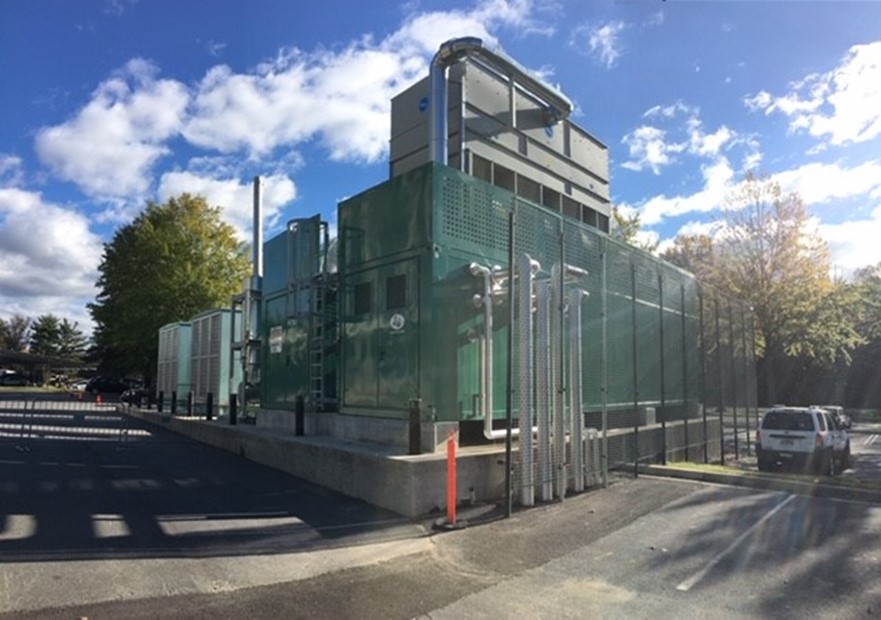- Home
- Applications
- CHP for Microgrids
CHP for Microgrids
A Profitable Partnership.
These mutually compatible technologies come together to be more efficient, cost-effective, profitable, and useful than they are on their own.
• A CHP system linked with a microgrid allows the customer to utilize electrical energy and the thermal energy (hot water, steam, or chilled water) produced by the microgrid's power generation system.
• Increases overall efficiency, especially in the consumption of fuel feeding the microgrid's power generator.
• Reduces net operating costs. CHP often forms the most economical anchor for a microgrid system.
• Energy provided by the CHP can help with load balancing or add to energy storage.
Microgrids provide resiliency, flexibility, cost savings and efficiency - ideal qualities for criticial infrastructure such as hospitals, wastewater treatment plants, and other public facilities that communities depend on when the main grid goes down.
Microgrid Priorities:
• Economic dispatch
• Electric/Thermal Energy Resilience
• Island Mode
• Extended Emergency Operations
Microgrid Components:
• Solar
• Wind
• Battery
• CHP
• Grid
• MG Controller
Case Studies

Public Safety Headquarters - Gaithersburg, Maryland
• 2,000kW - Carport PV arrays: Produce 3,400MWh/year (net-metering)
• 800kW CCHP system: Produce 6,650MWh/year
• 180 tons absorption chiller: 483MWh/year reduction in electrical for electrical chillers
• Avoided NG consumption in boilers: 6,500 MMBTU/year
Reduction in emissions is equal to the annual GHG emission of 672 vehicles or the generation of electricity for 123 homes
Other benefits in the Project also include:
• Replacement or improvement to of aging substation and electrical distribution equipment
• Medium voltage service gear, transformers
• Low voltage service distribution gear
• Improved resiliency of facility to run off grid when necessary with the NG CCHP


